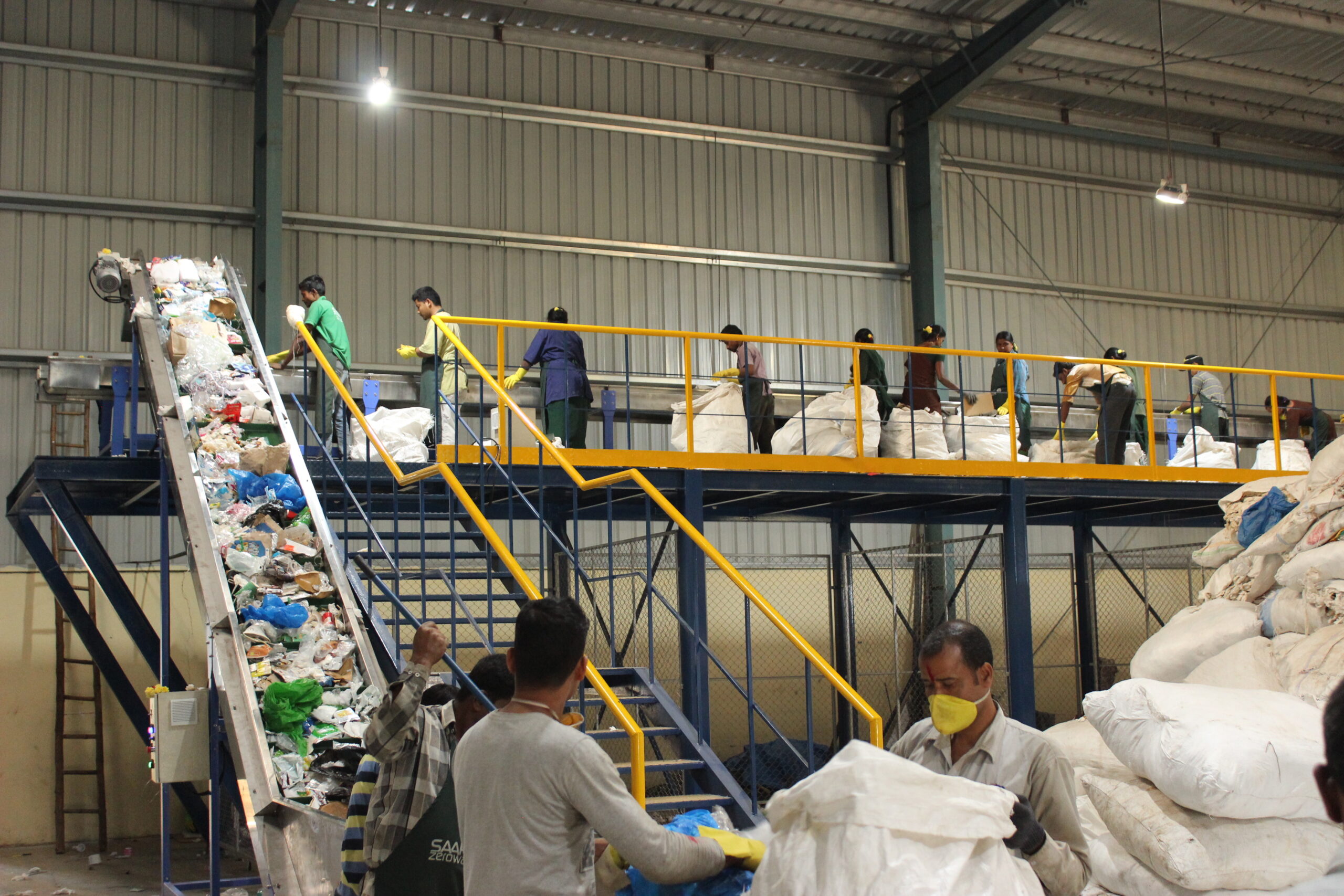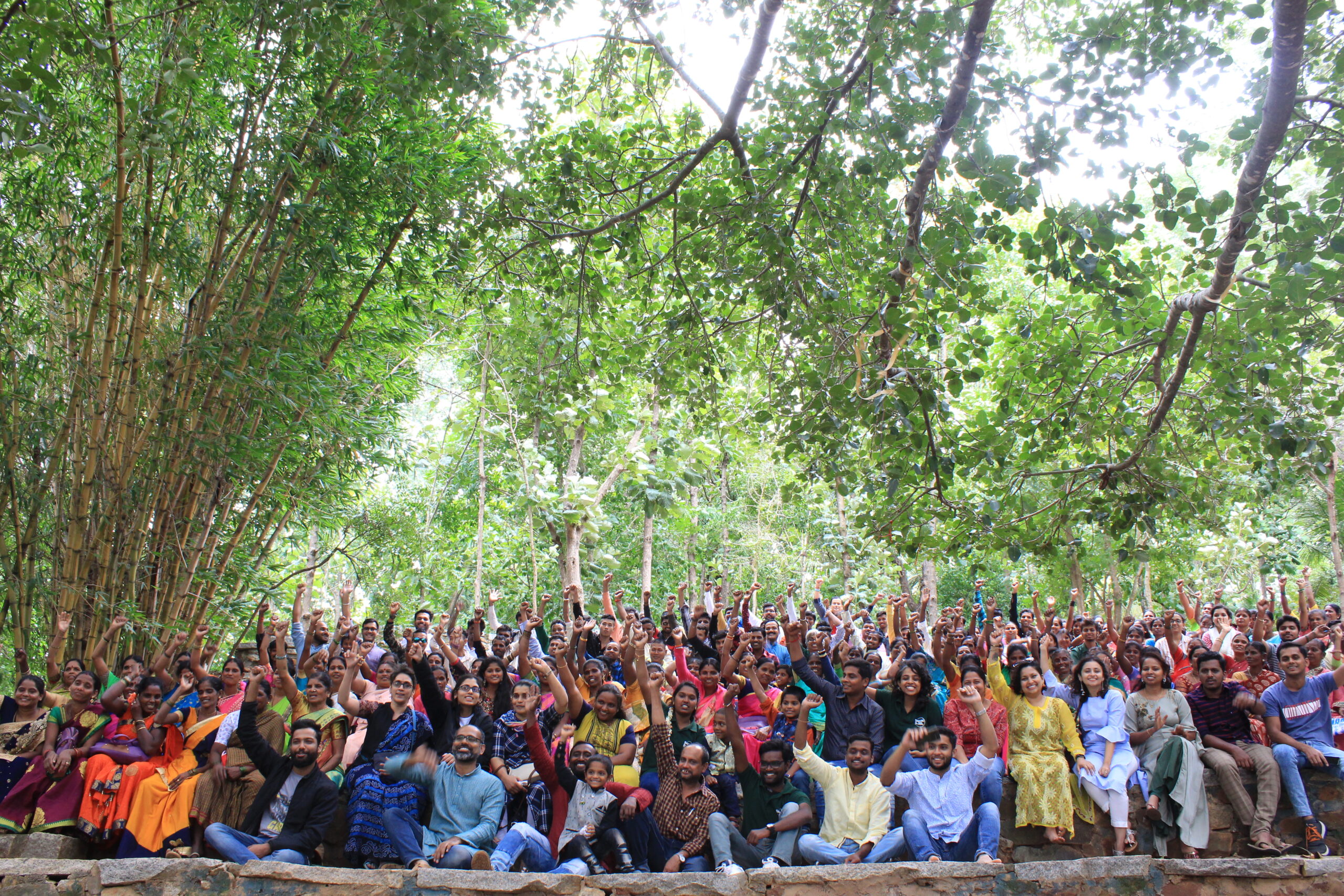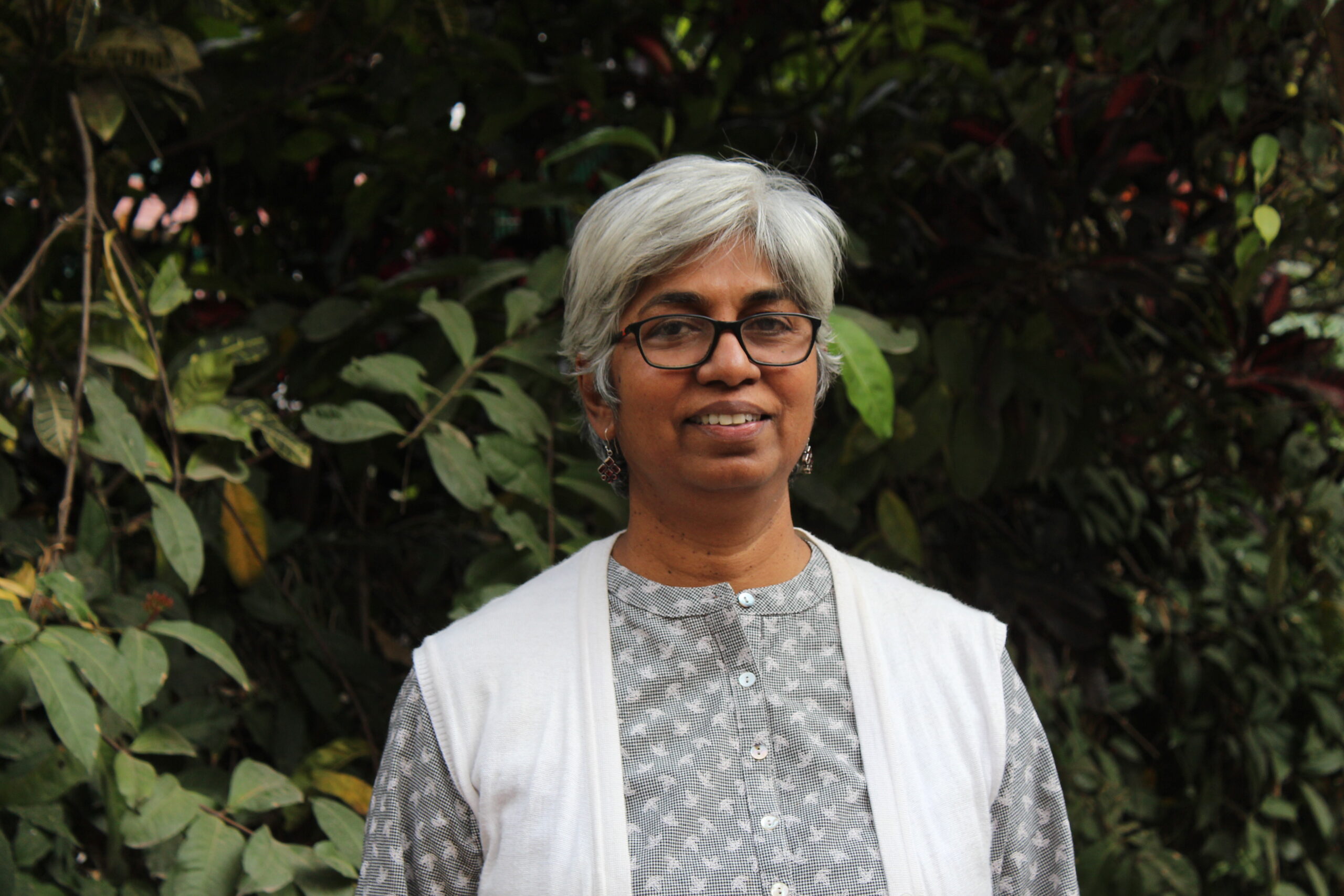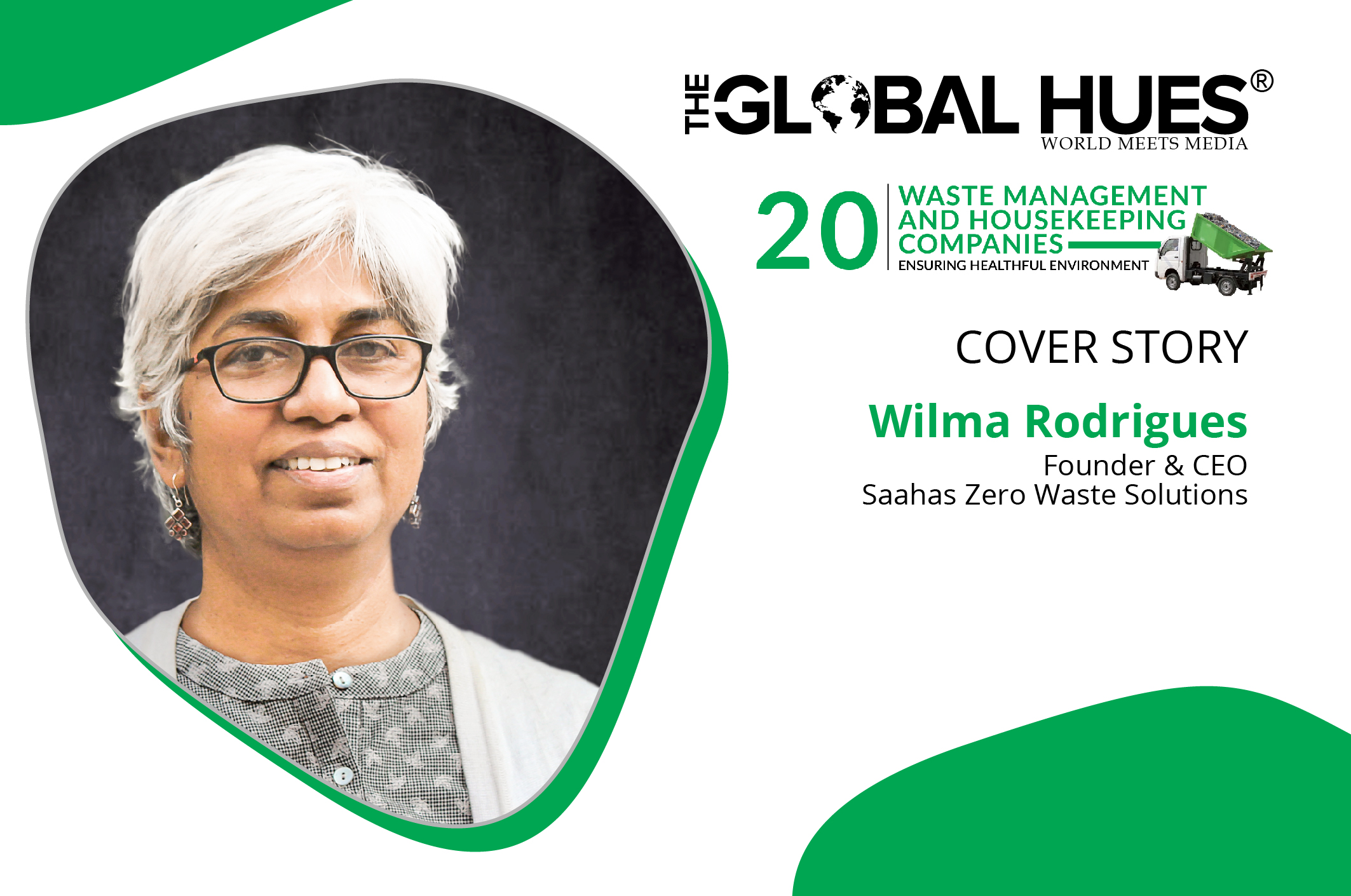Waste management is making its mark in the daily lives of people, helping them know the consequences of increasing quantities of waste entering their homes. However, awareness is not the only solution. Waste management also needs a well-organized structure. But, the waste management industry in India mainly relies on the unorganized structure, and it is going through the dire circumstances of unethical and uncertain practices.
To address this alarming concern of bringing safer and more ethical waste management techniques and ensuring a healthful environment, Wilma Rodrigues co-founded Saahas in 2001, a not-for-profit focusing on solid waste management—segregation of wet and dry waste at source, composting wet waste, and recycling dry waste, among other things, in Bengaluru. The venture started by helping supermarkets reduce their plastic waste before progressing to sustainable on-site waste management solutions for bulk waste generators such as large corporate offices.
Soon, the idea became a revenue-generating business; in 2013 Wilma Rodrigues moved into the for-profit entity as Saahas Waste Management Private Limited. The company’s mission is to bring together nature, people, and technology to provide the most impactful waste management solutions that maximize resource recovery. Their end-to-end waste management services are based on the principles of a circular economy. They handle waste sustainably & responsibly for MNCs, tech parks, residential communities, and other bulk-generating organizations and institutions. Today, Saahas is a team of 255 people who are working together to provide professional waste management services to bulk waste generators as well as to companies who would like to fulfill their Extended Producer Responsibility.
Wilma Rodrigues, the founder & CEO of Saahas Zero Waste Solutions, has been a pioneer in the waste management industry for the past 19 years. She has had a diverse career path – from being a tour guide and German language translator to a business journalist, and then in the waste management sector. She has been honored with Social Entrepreneur 2015 by Action for India. In academics, Wilma has Bachelor’s degree from St. Xavier’s College.
SERVICE PORTFOLIO
Saahas’s services are aligned to the SDG where the team focuses on environmental
and social change. In 2020, the company managed 20,000 tonnes of waste through its three business verticals:
- The Zero Waste Programme works with bulk waste generators such as corporate campuses, apartment complexes, and educational institutions to implement source segregation, collection of segregated waste, and processing of the waste in authorized destinations.
- Extended Producer Responsibility – works with brands and producers to support collection and reverse logistics of plastic and e-Waste as per the EPR regulations.
- Circle Up: enables closing of the loop by selling recycled products.
EMERGING AS A DIFFERENTIATOR
“Waste is a resource. We support customers by taking responsibility for their waste. Through our zero waste programme, we are able to offer our customers the opportunity to recover more than 96% of the total waste which they generate. This enables them to become a zero-waste entity which in turn brings benefits to the environment and also ensures compliance with labour laws, this way we maintain an unbreakable faith with our clients,” Wilma Rodrigues said.
They work with reducing as the first step in the waste management hierarchy. They support customers move away from single-use paper or plastic products including paper towels or cups. The next step is segregation at the source. This ensures that the team gets clean fractions of waste which is then collected in a segregated manner. They have intensive operations which include sorting of waste which happens at multiple locations beginning with on-site secondary sorting in customer locations. This enables the removal of contaminants and helps in resource recovery.

NO HARM TO ENVIRONMENT
SZW follows the principles of a circular economy. This includes decentralized waste management as the focus and approach. This means that they look to process waste as close to the source as possible. In many of their corporate customer locations, they compost all the food waste onsite and the compost is used back on the campus. Likewise,
they have decentralized biogas facilities set up on campus where the bio CNG is used for cooking in the kitchens. The company also works with decentralized Material Recovery Facilities which are semi-automated. These facilities also aggregate the different types of waste. There are as many as 30 different waste streams that are aggregated and each waste stream is then sent to a recycler that processes this waste stream.
STRATEGIES TO CONTROL THE WASTE & SERVICE RELATED TO ‘BIOFUELS’
Waste must be looked at as a resource. Regulations must be such that all waste generators should be accountable for the waste that they generate and ensure maximum resource recovery. According to Wilma Rodrigues,
“We can start by making brands and producers accountable for the waste that their businesses generate”.
This would mean that all brands have to account for their packaging waste and ensure that they include the cost of collection, processing, and recycling in the product costs. Recycling infrastructure must be such that there is closed-loop recycling.
“We also need to have regulations that will push for conscious consumerism. This can be done if the cost of products and services includes the cost of the footprint in terms of the environment. Currently, the extraction of natural resources does not take into account the environmental repercussions at the end of life of these products. The Polluter Pays Principle must be strongly embedded in all businesses. Waste management businesses on the other hand should also follow the principle of reducing, reusing, repairing, and closed-loop recycling. This will make our businesses far more operations intensive. However, we will be able to create far more jobs and livelihood options.”
“Bio-CNG is a good option for processing organic/wet waste. The energy recovery is significant and can be put to efficient use in kitchens either directly through piped gas or through cylinders. We work in partnership with companies that install bio-CNG facilities. Operate these facilities for some of our customer locations. We also deliver good quality wet waste to some of our partner locations which are built and operated by these companies.”

ROADBLOCKS FOR WASTE MANAGEMENT COMPANIES & ADVICE TO OVERCOME THEM
- Segregation at source is a challenge but SZW has addressed the same by insisting that customers introduce this system at all waste generation points.
- Recycling infrastructure continues to be a challenge and there is a need for a global push to ensure that businesses invest in take-back and recycling systems.
- There is a mindset around disposal where consumers and brands would rather dump their waste in a landfill or in a waste to energy plant rather than make the effort to recover maximum resources.
“Regulations and implementation of the regulations are used to overcome the above challenges”

RECOGNITION
- CII (Confederation of Indian Industry) 3R Award for Excellence in Managing Municipal Solid Waste, 2020.
- Sri Sathya Sai Award for Human Excellence, 2019.
- Swachh Bharat best practice award for the Zero Waste Program, 2018.
- Waislitz Global Citizen Award, 2017.
- Recognized by Confederation of Indian Industry as Emerging Entrepreneur for Southern India, 2016.
FUTURE OUTLOOK
While talking about future plans, Wilma Rodrigues said, “We are looking to offer our comprehensive decentralized waste management services across the country. Our vision is for circular economy and resource recovery to become a part of mainstream waste management processes. We work with Nature, People, and Technology to recover maximum resources. Technology in that sense is an enabler. We use technology to trace and track our waste collection and also in the recognition of materials, sorting and also recycling and processing.”
A PIECE OF ADVICE FOR GOOD WASTE MANAGEMENT
It is important for any waste management company to ensure that the customer is also aligned with maximum resource recovery and therefore pays appropriately so that this waste is not dumped in a landfill or incinerated but gets put through a cycle where ultimately resources are recovered. This will require responsibility and efforts from the waste generator/customer. Likewise, it’s important for social impact to be measured by ensuring compliance with all the labor regulations.
- 20 Waste Management And Housekeeping Companies Ensuring A Healthful Environment
- 7R’S of Waste Management, Steps to Sustainability
- Types Of Waste, Sources And Their Solutions: A Glimpse Of Swachh Bharat Abhiyan
- Waste Management: The Need Of The Hour?
- Waste Management Workers – A Blessing In Disguise
- 5 Budget-Friendly Eco Swaps For Healthy Earth
- Handiman Services, Embracing Latest Innovations To Offer A Comprehensive Range Of Unparalleled Cleaning Solution
- Housekeeping Businesses: Extending A Hand Towards Hygiene
- Significance Of Housekeeping; Why It Should Be A Responsibility And Not Just An Essential Task!
- Health And Hygiene- To Triumph Over Covid-19
- 10 Housekeeping Secrets Shared By The Older Bunch Of The House
- Window Insulation Tips For Winter




